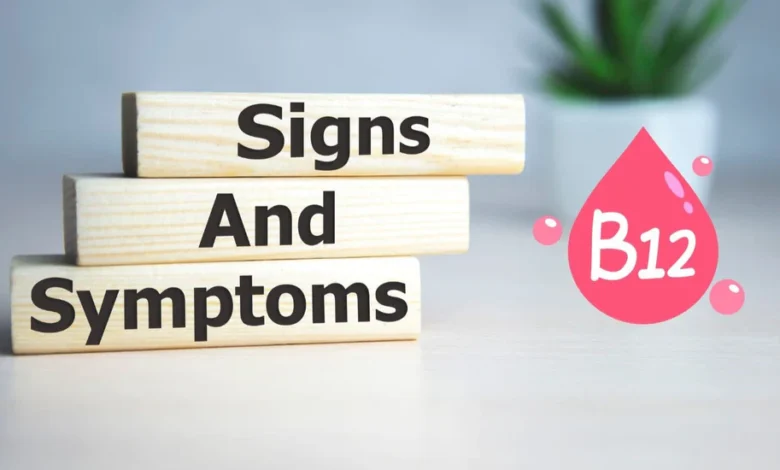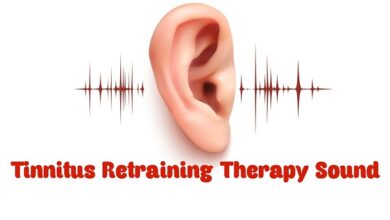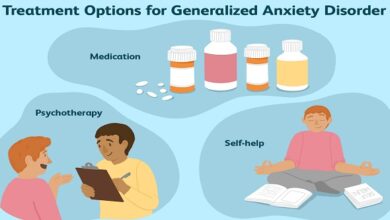Symptoms of Vitamin B12 Deficiency: 14 Warning Signs You Shouldn’t Ignore

Introduction to Symptoms of Vitamin B12 Deficiency
Vitamin B12 (cobalamin) plays a vital role in producing red blood cells, maintaining nerve health, and supporting energy metabolism. Recognizing symptoms of vitamin B12 deficiency early in 2025 is critical, especially with rising vegetarian and vegan diets, aging populations, and gastrointestinal disorders affecting absorption.
Many people don’t realize they are deficient until symptoms become severe. Below, we explore 14 common signs—some neurological, and some physical.
Why Vitamin B12 Is Crucial in 2025
In a world where restrictive diets and aging are more common, Vitamin B12 deficiency is on the rise. B12 is essential for DNA synthesis, nerve function, red blood cell formation, and cognitive clarity. Without sufficient intake or absorption, deficiency can lead to significant health problems.⁺
Groups at risk include vegans, older adults, and people with gastric surgery. If untreated, deficiency may lead to irreversible nerve damage and cognitive decline.
What Causes a Deficiency of Vitamin B12?
Key causes include:
- Inadequate dietary intake—vegan or vegetarian diets without fortified foods or supplements
- Malabsorption from conditions like pernicious anemia, Crohn’s, celiac disease, or post-gastric surgery
- Age-related absorption decline in people over 60
- Medication interference—especially metformin or proton pump inhibitors.
How Common Is Vitamin B12 Deficiency Today?
Vitamin B12 deficiency affects up to 10% of individuals over age 75, and among those aged 65–74 nearly 5% are affected. Despite this prevalence, many cases go undiagnosed due to subtle or non-specific early symptoms.
Who Is Most at Risk for B12 Deficiency in 2025?
- Vegans and vegetarians without supplementation or fortified foods
- Older adults experiencing decreased stomach acid or intrinsic factor
- Individuals with digestive disorders (e.g., Crohn’s, celiac) or who have had gastric surgery
- Medication users, particularly PPIs or metformin
- People with autoimmune conditions like pernicious anemia or Sjögren’s syndrome.
The Role of Vitamin B12 in the Body
Vitamin B12 supports:
- Red blood cell production (deficiency causes macrocytic anemia)
- Myelin sheath maintenance for healthy nerve signals
- DNA and energy metabolism
- Mood regulation and cognitive function.
14 Signs of Vitamin B12 Deficiency in 2025
1. Fatigue and Weakness
One of the earliest symptoms of low B12 is persistent fatigue or muscle weakness—even after rest. This is often connected to anemia or reduced oxygen delivery.
2. Tingling, Numbness, or “Pins & Needles” (Paresthesia)
Neurological depletion often manifests as tingling or numbness in the hands and feet—early signs of nerve damage. The condition may progress if not corrected.
3. Pale or Jaundiced Skin
Deficiency-related anemia can cause pale skin, while the breakdown of red blood cells may produce jaundice.
4. Shortness of Breath and Dizziness
Low red blood cells can result in oxygen deficit, causing breathlessness, dizziness, and fainting, particularly during activity.
5. Memory Loss, Brain Fog, Cognitive Difficulties
B12 is important for neurological health; deficiency may cause memory issues, confusion, difficulty concentrating, or slower thinking speed.
6. Mood Changes and Depression
Low B12 levels are associated with mood swings, irritability, depression, and even anxiety disorders due to disrupted synthesis of neurotransmitters.
7. Smooth, Red Tongue (Glossitis) and Mouth Ulcers
A sore, inflamed tongue or recurring mouth ulcers are classic symptoms reflecting mucosal changes from deficiency.
8. Vision Problems
Optic nerve damage from B12 depletion may result in blurred or disturbed vision.
9. Heart Palpitations or Increased Heart Rate
Due to anemia, the heart compensates by pumping faster, causing palpitations or irregular heartbeat.
10. Balance Issues or Gait Disturbance
Damage to sensory nerves in the spine can impair proprioception, causing difficulty walking or maintaining balance.
11. High Homocysteine Levels
Low B12 disrupts the methylation cycle, elevating homocysteine, a marker associated with cardiovascular risk.
12. Muscle Weakness and Cramps
Nerve impairment leads to muscle cramps, twitching, and generalized weakness.
13. Digestive Symptoms: Nausea, Diarrhea, Appetite Loss
Gastrointestinal discomfort, anorexia, constipation or diarrhea may indicate a B12-related deficiency.
14. Unexplained Weight Loss
Chronic deficiency can impair appetite and energy metabolism leading to unintended weight loss.
Vitamin B12 Side Effects: Can You Have Too Much?
While deficiency poses clear risks, excessive intake is unlikely to be harmful due to B12’s water-soluble nature—any surplus is usually excreted in urine. The FDA lists B12 as Generally Recognized as Safe.
Rare side effects from very high doses or injections may include:
- Skin rash or itching
- Acne or facial flushing
- Palpitations, anxiety, restlessness (akathisia), headache, insomnia in case reports of megadoses (~12mg total).
But no official upper intake limit exists, and most doses under professional supervision remain safe.
Testing for Vitamin B12 Deficiency
Diagnosis typically involves:
- A serum Vitamin B12 level (below ~150 pmol/L often indicates deficiency)
- Methylmalonic acid and homocysteine levels for confirmation
- Complete blood count (CBC) to assess for macrocytic anemia Cleveland Clinic
Healthcare providers review diet, digestive history, and physical exam findings—including neurological exams—to confirm diagnosis.
Treatment and Prevention
For mild to moderate deficiency:
- Oral supplements of cyanocobalamin or methylcobalamin
- Intramuscular B12 injections for severe or malabsorption cases
- Fortified foods or high-B12 foods (meat, fish, dairy, eggs)
Treatment may be lifelong in cases of poor absorption or pernicious anemia.
Preventive tips:
- Routine screening for vegetarians, older adults, and patients on absorption-impairing meds
- Include fortified food sources or periodic supplementation as needed.
Effects of Long-Term Untreated Deficiency
Untreated B12 deficiency can cause:
- Permanent nerve damage and sensory loss
- Degeneration of the spinal cord affecting movement
- Severe cognitive decline, dementia, psychosis
- Heart issues linked to long-term anemia
Early detection and treatment drastically improve outcomes; delays may result in irreversible effects.
Natural Food Sources of Vitamin B12
Vitamin B12 is naturally found in:
- Animal-based foods: beef liver, fish, poultry, dairy, eggs
- Fortified plant-based alternatives: breakfast cereals, nutritional yeast, plant milks
- Vegans should rely on supplements or fortified sources to meet daily needs (~2.4 µg/day).
When to Consult a Doctor
Seek medical advice if you experience:
- Persistent fatigue, neurological symptoms, unexplained weight loss
- Neuropathy (numbness/tingling)
- Cognitive changes, blurred vision, palpitations
- Any combination of the 14 listed symptoms
Prompt evaluation and blood testing can prevent irreversible complications.
Conclusion: Don’t Ignore These B12 Symptoms
Vitamin B12 deficiency is a silent but serious condition, with symptoms ranging from fatigue and anemia to nerve damage and cognitive decline. In 2025, rising risk factors make awareness more important than ever.
Watch for these 14 common signs of vitamin B12 deficiency, pair them with blood testing, and address the issue early. Proper diet, supplementation, and medical guidance can restore health—and prevent long-term consequences.
Frequently Asked Questions
What are the earliest symptoms of vitamin B12 deficiency?
Fatigue, weakness, pallor, shortness of breath, mild cognitive changes, and tingling in extremities are often the earliest signs.
Who is most at risk for B12 deficiency?
Vegan/vegetarian individuals, people over age 65, those with digestive disorders or gastric surgery, and those on PPIs or metformin.
Can taking high doses of B12 cause side effects?
While rare, very high doses—especially via injection—can lead to skin rash, palpitations, anxiety, headache, or insomnia. Generally, B12 has low toxicity.
Can B12 supplements prevent cognitive decline?
If deficiency causes symptoms, supplementation often improves memory, mood, and cognition. Long-term benefits in non-deficient individuals are uncertain.
How is vitamin B12 deficiency treated?
Treatment includes oral or injectable supplementation, B12-fortified foods, and dietary adjustments. Severity and cause dictate duration and form.
Why is early diagnosis of B12 deficiency important?
Early treatment reverses symptoms and prevents irreversible nerve damage, dementia, or spinal degeneration. Delays reduce recovery potential.
Read More About: Transform Your Smile with Invisalign Treatment Brisbane & Dental Implants




